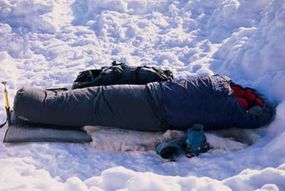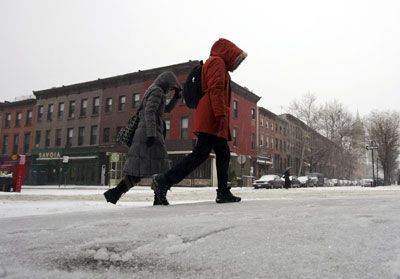The human body is somewhat like that perfect bowl of porridge in "Goldilocks and the Three Bears." It's not too hot, not too cold, but just right.
Our bodies maintain internal body temperatures that allow our insides to keep on cooking without burning up or slowing down -- usually around 98.6 degrees Fahrenheit (37 degrees Celsius). There's even a part of our brain called the hypothalamus that regulates this internal heat to keep everything running smoothly.
Advertisement
But when that core temperature of major organs drops down to 95 degrees or lower, it is called hypothermia. Just like when you have a high fever, hypothermia can slow your body and possibly lead to death.
When it comes to our bodies, a lot depends on heat. Heat is the byproduct of biochemical reactions within our bodies. The food and beverages we consume are just like the wood and kindling that make a fire. Our bodies gain energy from food, and that energy pumps our hearts, grows our hair and helps our digestive system break that food down into usable units. This process is called metabolism.
Think about all of the internal processes that take place when you run. It requires energy to move so many parts of your body at the same time. When all those parts crank up, we burn up energy, producing heat.
In the cold, our bodies strive to retain as much heat, or energy, as possible. In many parts of the body, blood vessels in our skin tissue constrict, or tighten up. This tightening helps keeps blood away from the cold outer layer of the body and helps circulate warmer blood to our core areas. This tightening is also why you may feel stiff after being in the cold for a long time.
However, areas with large blood vessels, particularly around the head, neck, chest and groin, are more susceptible to heat loss because those blood vessels don't constrict as effectively as the smaller ones near the skin. That's why proper winter attire includes a hat, scarf and coat.
With all of these internal actions and reactions taking place within the body, what can we do to protect our core temperature and defend ourselves from hypothermia? We'll answer those questions, and explain how hypothermia develops on the next page.
Advertisement






